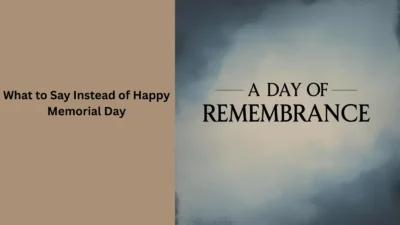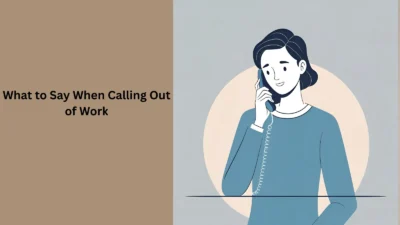Losing someone you love is one of the hardest things in life. When a friend is grieving, we often feel unsure of what to say. We don’t want to say the wrong thing—but staying silent can feel just as painful. If you’ve ever wondered, “What to say to a friend who lost a loved one?”, you’re not alone.
Many people struggle to find the right words in times of grief. In this guide, we’ll gently walk you through kind, supportive, and thoughtful things you can say—and also what to avoid.
Your words can be a light in their darkest moment.
Acknowledge Their Loss With Simple, Honest Words
When someone is grieving, just recognizing their pain matters.
Example of what to say:
- “I’m so sorry for your loss. I can’t imagine how hard this is for you.”
Real-life scenario:
Your friend tells you their parent passed away. Instead of rushing to fill the silence or trying to “fix” things, simply pause and say, “That’s heartbreaking. I’m here for you.” This shows care without pressure.
What not to say:
❌ “At least they lived a long life.”
Why it hurts: It minimizes their pain. Grief isn’t about age—it’s about loss.
✅ Do say simple, heartfelt phrases that show you’re present and listening.
Let Them Talk—And Just Listen
Sometimes, the best thing you can say is… nothing.
When a friend is grieving, they often need someone to simply listen without judging or offering solutions.
Example:
If they start sharing memories, try responding with:
- “That sounds like such a special moment.”
- “Tell me more about them, if you’d like.”
Real-life scenario:
Your friend brings up how much they miss their sibling. Instead of changing the subject, ask gently, “What were they like?” It opens the door for healing conversation.
Don’t:
❌ Change the subject or try to distract them unless they want that.
✅ Create space for their feelings, even if it’s uncomfortable.
Offer Specific Help, Not Vague Promises
Many people say, “Let me know if you need anything.” While kind, it puts the burden on the grieving person.
Instead, offer clear ways you can help.
Example:
- “Can I bring dinner over Thursday night?”
- “I’ll check in with you Friday, just to say hi.”
Real-life scenario:
If your friend is overwhelmed with tasks after a loss, offer: “Can I take the kids for an afternoon so you can rest?” That shows real support.
Avoid:
❌ “Call me if you need something.” They likely won’t.
✅ Be specific. Be actionable. Be consistent.
Speak Their Loved One’s Name
Saying the name of the person who passed away might feel awkward—but to your friend, it can be healing.
Why it matters:
It shows you remember, and that their loved one mattered.
Example:
- “I remember when Sarah made us laugh so hard on that trip.”
- “Tom always had the kindest smile.”
Real-life scenario:
You see a photo of your friend’s father on their fridge. Say something like, “He had such a warm face—he must’ve been wonderful.”
Avoid:
❌ Avoiding their name out of fear. It may feel like their loved one is being forgotten.
✅ Share memories, even small ones. They mean the world.
Be There for the Long Haul
Grief doesn’t end after the funeral. Your friend may need support weeks, months, or even years later.
What to do:
- Mark the anniversary of their loss.
- Check in during holidays.
- Send a simple “Thinking of you” text.
Example:
- “Just wanted to let you know I’m thinking of you today.”
- “I know it’s been six months—how are you really doing?”
Real-life scenario:
On their loved one’s birthday, text your friend, “Sending love today. I remember how much they meant to you.”
Avoid:
❌ Disappearing after the first few weeks.
✅ Show up. Keep showing up. That’s what makes a difference.
Respect Their Grieving Style
Everyone grieves differently. Some cry. Some go quiet. Some talk a lot.
Let your friend lead the way in how they want to express their grief.
What to say:
- “However you’re feeling is okay.”
- “There’s no right or wrong way to grieve.”
Real-life scenario:
If your friend jokes or laughs during grief, don’t judge. It may be their way of coping. Say, “I’m glad you can still smile. That’s okay too.”
Avoid:
❌ Telling them how they should feel or when they should “move on.”
✅ Validate their emotions—whatever they may be.
When in Doubt, Just Say: “I’m Here”
If you’re not sure what to say, don’t overthink it. A kind presence goes a long way.
Example:
- “I’m here if you want to talk, cry, or just sit together.”
- “You don’t have to go through this alone.”
Real-life scenario:
Your friend returns to work and looks overwhelmed. Quietly say, “If it ever feels like too much, I’m always just a call away.”
✅ Being there beats saying the perfect thing.
Final Thoughts
Losing someone is never easy—and neither is knowing what to say. But your words, even the simple ones, can bring comfort, warmth, and healing.
Remember, when thinking about what to say to a friend who lost a loved one, it’s not about saying the perfect thing. It’s about being real, kind, and present.
Just showing up with a caring heart is enough.




